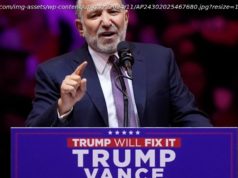The music manager acquired the rights to the pop superstar’s first six albums as part of a deal with her former label, Big Machine. Now he has sold them to the investment firm Shamrock Capital.
Once again, Taylor Swift’s music has been sold. And once again, she is deeply unhappy about it. For the second time in a year and a half, the recording rights to Swift’s first six albums — LPs that include megahits like “Love Story,” “Shake It Off” and “We Are Never Ever Getting Back Together” — have traded hands, and in response Swift has dragged private equity investors into the rough-and-tumble public conflict of celebrity social media. Last summer, the music manager Scooter Braun made a deal, estimated at $300 million to $350 million, to buy the Big Machine Label Group, the Nashville label that signed Swift when she was a teenager. That led to a dramatic public clash, when Swift called the deal her “worst-case scenario.” (Braun had managed her longtime rival Kanye West.) She called on her legions of fans to tell Braun and the Carlyle Group, the large private equity firm that is a major backer of Braun’s company, Ithaca Holdings, how they felt about it. Swift also indicated that she planned to rerecord new versions of her old music, thus potentially devaluing the original assets. In some ways, Braun’s deal for Big Machine was a routine transaction in the music industry, where hit catalogs change hands regularly. But Swift highlighted the fact that, like most artists, she did not control the rights to her own recordings, music videos and album art. In a heated exchange, Swift accused Big Machine and Braun of blocking her from performing her own work at an upcoming awards show. Her protestations — and the news media coverage of it — led to months of talks involving Ithaca and Carlyle, which is better known for its past advisory arrangements with former heads of state like George Bush and John Major than for its involvement in entertainment-industry tussles.
Home
United States
USA — Financial Taylor Swift Denounces Scooter Braun as Her Catalog Is Sold Again






